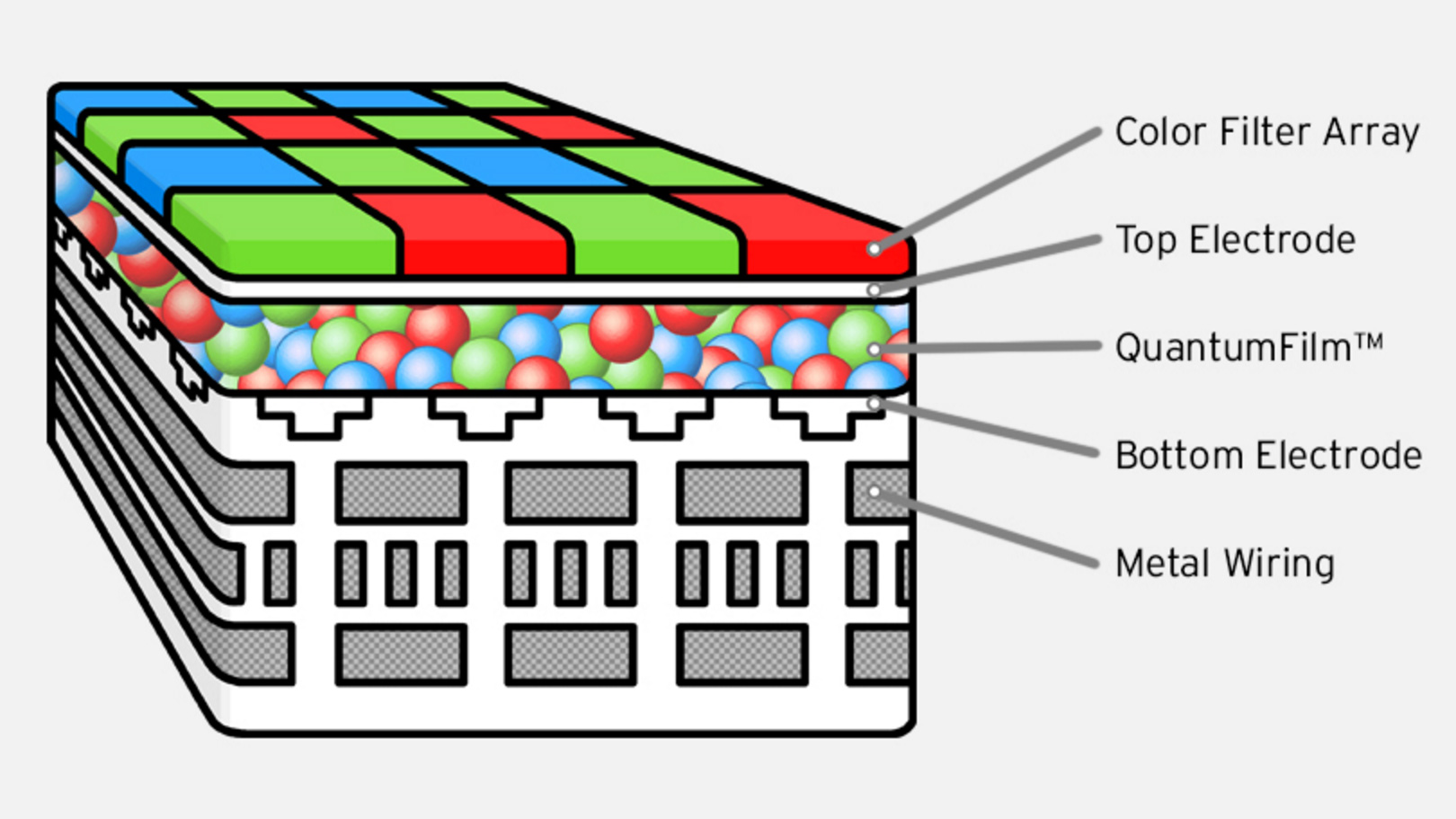
Apple may have acquired or at least hired some engineers away from camera sensor company InVisage Technologies, a move that some watchers speculate could potentially pave the way for future iPhones that take better low-light photographs.
Two sources told the Image Sensors World blog that the deal was closed in July this year.
“Harnessing the power of custom-designed nanoscale materials, InVisage has created a new generation of QuantumFilm-based image sensors that puts the camera in a whole new light,” reads the company’s website.
A proprietary photosensitive layer, QuantumFilm uses InVisage’s custom material made up of quantum dots to provide unprecedented light sensitivity and customizability.
Traditional smartphone cameras rely on a rather inefficient silicon-made photosensitive layer, yielding poor low-light performance. Making matters worse, they also use physical barriers to isolate each pixel in order to prevent crosstalk, which means less room for light sensing.
With over three times the dynamic range of the traditional smartphone camera sensor, InVisage’s QuantumFilm layer lets users capture “supremely detailed images in almost any lighting condition where there is bright sky.”
InVisage explains how the QuantumFilm layer maximizes light sensing capability:
In a QuantumFilm pixel, light passes through the color filter array, and is then detected by the quantum dots in the QuantumFilm layer.The metal wiring represents the sensor’s electrical circuitry.The higher positioning of the photosensitive layer allows the QuantumFilm pixel to detect more photons, store more electrons (and therefore more photographic information), and reproduce colors more accurately—all with a thinner camera module.
Across the visible spectrum, QuantumFilm absorbs the same amount of light as silicon in a layer ten times thinner. Apple has said that iPhone 8 and iPhone X cameras take advantage of an all-new bespoke color filter, but never provided specifics.
If Apple has in fact acquired InVisage talent or technology, it’s possible that cameras in the latest iPhones already use some form of the QuantumFilm filter.

InVisage’s website is still online, buts its news section hasn’t been updated since 2016 and it no longer includes employee profiles, a sign that Apple may have acqui-hired the firm.
In September 2016, InVisage unveiled its lightweight Spark4K Micro-LiDAR module designed for autonomous drones. The ultra-portable module enables autonomous drone flight, fusing depth mapping and high resolution 4K video for “unprecedented obstacle avoidance” at a 20-meter range without added weight of conventional LiDAR.